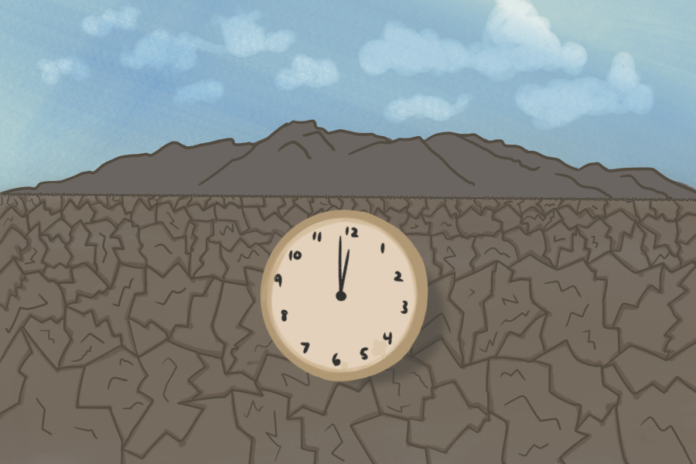Key climate takeaways from Utah’s Great Salt Lake
By EMILIE BROWN — emrbrown@ucdavis.edu
In early January, a new study by Brigham Young University (BYU) predicted that the Great Salt Lake just outside of Salt Lake City, Utah, is on track to completely disappear within five years.
The lake is a habitat for 10 million migratory birds, feeds millions worldwide through fertilizer and brine shrimp and generates $2.5 billion in economic activity every year. It also increases precipitation, suppresses toxic dust and supports Utah’s wetlands. The study showed that, without a coordinated conservation plan, we can expect widespread air and water pollution, numerous endangered species act listings, agricultural declines and health issues for people living near the lake as a result of its disappearance.
In response to the report, the state of Utah almost immediately began efforts to conserve the lake and has developed a $500 million plan to conserve the Great Salt Lake.
However, we’ve known that the Great Salt Lake was drying up for years and the effects that could have. As a climate-change-fueled megadrought has swept the West, the Great Salt Lake has suffered. Already, it has lost 73% of its water and 60% of its surface area. So why are we only taking serious action to conserve it now? Why are we only spending so much on it now? Why are news outlets and city councils only talking about it now?
We keep acting too late on climate change issues. This is just one of thousands of examples.
These days, it’s easy to say you care about climate change. Yet a larger and larger gap is growing between caring about it and acting to help stop it.
It’s easy to say you’re going to cut back your single-use plastic use, lower your meat and dairy intake or recycle more. But unless the solutions are incredibly easy or the problems’ effects are so apparent we cannot ignore them, few of us take action in our day-to-day lives. For the Great Salt Lake, serious actions were only taken after the effects of the lake drying up were already starting to become a problem and the issue was impossible to ignore. Ice caps melt, wildfires rage, ocean levels rise. Scientists predicted this could happen if we continued on the same track. But only now that the damage has been done do we start to care.
While we can’t change the past, we can change how we think and act about climate change issues today. Instead of procrastinating, we need to start taking small actions now. Whether that is commuting via bike instead of a car, buying oat milk instead of cow’s milk or washing your clothes on cold instead of hot, we all make choices every day that impact the environment and we get to choose whether it’s a positive impact or a negative one.
Start thinking about climate change as an issue that is happening now, and start thinking about your everyday actions as actions that can help fight it.
Written by: Emilie Brown — emrbrown@ucdavis.edu
Disclaimer: The views and opinions expressed by individual columnists belong to the columnists alone and do not necessarily indicate the views and opinions held by The California Aggie.





